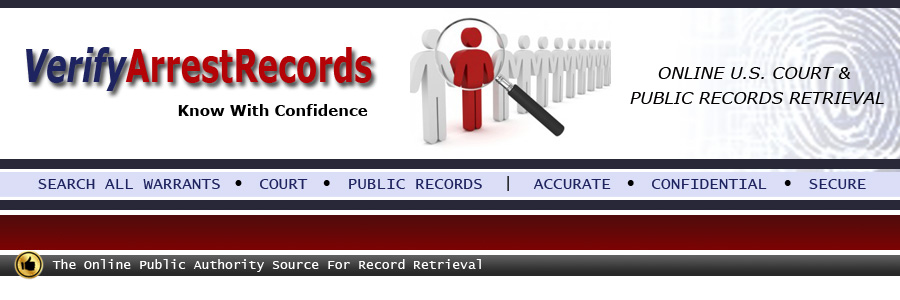
How A Criminal Record Effects Employment
Most jobs today require a background check at some point during the hiring process. If you have a criminal or arrest record it will definitely show up on a background check. Many employers see this as a red flag not to hire a person with a criminal past, even though the Equal Employment Opportunity Commission (EEO) laws prohibit discrimination against citizens with an arrest history.
For the fairness of all citizens, some states have adopted certain restrictions. In those circumstances employers can not use arrest and conviction records when considering hiring needs. Employers may also be prohibited from asking prospective hirees about arrest records altogether or require them to wait until late in the hiring process before asking about your arrest history. If an individual has an arrest record and there's no proof of guilt, meaning you were never convicted of the crime, an employer cannot use that information against you in making hiring decisions, or to fire or suspend existing employees.
Consumer Protection and Criminal Background Checks
Employers that run a background check on potential employees are bound by law to abide by the Fair Credit Reporting Act (FCRA). Under this legislation employers are required to:
Get your permission before running a background check
Give you a copy of the report and a summary of your rights before using that information in the hiring process.
Send you a notice if they decide not to hire you based on the
information found in the CRA report.
To find out more about the laws governing background checks and public data information:
1. Visit the Federal Trade Commission's website.
2.Contact the FTC at 1-877-FTC-HELP (1-877-832-4357).
Expungement
If you have an arrest or criminal record in your name, the record remains on file indefinitely unless you file a motion with the court system to either have it removed or expunged. To have a record expunged means the record will be destroyed and taken off your court file forever. To seal a record means your record won't be available for public view, but, keep in mind that court and legal officials are able to view sealed records at any time if they have a reason.
Note: some crimes (mostly felonies) can't be expunged from your record if you are found guilty, such as murder and sexual assault.
If you have an arrest or criminal record that you would like expunged from your public file, you must first file a petition with the local district court where the record resides. In order to do this there's a process involved and usually a waiting period because the motion has to go through the legal system to be approved.
If the record is of a criminal nature and you were found guilty of a crime or have previous offenses, then it's best to seek legal counsel. A lawyer who is knowledgeable in criminal cases can help you get the record removed and has the means to deal with the court system. The court may deny your petition if you approach them yourself. If you were found not guilty or your case was dismissed, then the motion to seal the record will almost always be granted.
How to File a Police Report
If you've been the victim of a crime, the first thing you should do is file a police report. Contact the police department in the city or town where the crime took place as soon as possible after the incident. That way details of the crime are fresh in your mind and you can provide the most accurate information to the police.
You have the option to give your statement in person at the police station or request an officer come to your home if you're too upset to leave. Be prepared to answer questions to the best of your knowledge; including type of crime, items missing, stolen or damaged, detailed description of the suspect, and the name, address, and vehicle type or plate if known. Be sure to get the case number in the event you've forgotten any details and need to contact the officer at a later date.
There is no fee to file a police report, but there is one to obtain a copy. Some police jurisdictions allow you to file police reports online which can save you time. But, more serious crimes should always be filed in person with police present.
Note: Never file a false police report for a crime that didn't take place. This is considered a crime and punishable by law.
Most jobs today require a background check at some point during the hiring process. If you have a criminal or arrest record it will definitely show up on a background check. Many employers see this as a red flag not to hire a person with a criminal past, even though the Equal Employment Opportunity Commission (EEO) laws prohibit discrimination against citizens with an arrest history.
For the fairness of all citizens, some states have adopted certain restrictions. In those circumstances employers can not use arrest and conviction records when considering hiring needs. Employers may also be prohibited from asking prospective hirees about arrest records altogether or require them to wait until late in the hiring process before asking about your arrest history. If an individual has an arrest record and there's no proof of guilt, meaning you were never convicted of the crime, an employer cannot use that information against you in making hiring decisions, or to fire or suspend existing employees.
Consumer Protection and Criminal Background Checks
Employers that run a background check on potential employees are bound by law to abide by the Fair Credit Reporting Act (FCRA). Under this legislation employers are required to:
Get your permission before running a background check
Give you a copy of the report and a summary of your rights before using that information in the hiring process.
Send you a notice if they decide not to hire you based on the
information found in the CRA report.
To find out more about the laws governing background checks and public data information:
1. Visit the Federal Trade Commission's website.
2.Contact the FTC at 1-877-FTC-HELP (1-877-832-4357).
Expungement
If you have an arrest or criminal record in your name, the record remains on file indefinitely unless you file a motion with the court system to either have it removed or expunged. To have a record expunged means the record will be destroyed and taken off your court file forever. To seal a record means your record won't be available for public view, but, keep in mind that court and legal officials are able to view sealed records at any time if they have a reason.
Note: some crimes (mostly felonies) can't be expunged from your record if you are found guilty, such as murder and sexual assault.
If you have an arrest or criminal record that you would like expunged from your public file, you must first file a petition with the local district court where the record resides. In order to do this there's a process involved and usually a waiting period because the motion has to go through the legal system to be approved.
If the record is of a criminal nature and you were found guilty of a crime or have previous offenses, then it's best to seek legal counsel. A lawyer who is knowledgeable in criminal cases can help you get the record removed and has the means to deal with the court system. The court may deny your petition if you approach them yourself. If you were found not guilty or your case was dismissed, then the motion to seal the record will almost always be granted.
How to File a Police Report
If you've been the victim of a crime, the first thing you should do is file a police report. Contact the police department in the city or town where the crime took place as soon as possible after the incident. That way details of the crime are fresh in your mind and you can provide the most accurate information to the police.
You have the option to give your statement in person at the police station or request an officer come to your home if you're too upset to leave. Be prepared to answer questions to the best of your knowledge; including type of crime, items missing, stolen or damaged, detailed description of the suspect, and the name, address, and vehicle type or plate if known. Be sure to get the case number in the event you've forgotten any details and need to contact the officer at a later date.
There is no fee to file a police report, but there is one to obtain a copy. Some police jurisdictions allow you to file police reports online which can save you time. But, more serious crimes should always be filed in person with police present.
Note: Never file a false police report for a crime that didn't take place. This is considered a crime and punishable by law.



Your Rights When Pulled Over For A DUI
In order for a police officer to pull you over for a DUI, he/she must suspect that you're under the influence. This may include but is not limited to: driving too slowly, weaving out of your lane, reckless driving, running a red light or disobeying simple traffic laws.
---------------------------------------------------------------
Once you are pulled over you have the right to refuse a field sobriety test or submit to chemical testing. Note that refusing either will automatically lead to your arrest and possibly loss of you driver’s license.
---------------------------------------------------------------
If your behavior is out of control or belligerrent and the officer feels you are a threat to yourself or others, they can legally arrest you without reading you your rights.
---------------------------------------------------------------
You have the right to be told what charges are being brought against you. You can refuse to answer any questions since what you say can be used against you at a trial.
---------------------------------------------------------------
You have the right to legal representation and have an attorney present during your testing if you so desire.
In order for a police officer to pull you over for a DUI, he/she must suspect that you're under the influence. This may include but is not limited to: driving too slowly, weaving out of your lane, reckless driving, running a red light or disobeying simple traffic laws.
---------------------------------------------------------------
Once you are pulled over you have the right to refuse a field sobriety test or submit to chemical testing. Note that refusing either will automatically lead to your arrest and possibly loss of you driver’s license.
---------------------------------------------------------------
If your behavior is out of control or belligerrent and the officer feels you are a threat to yourself or others, they can legally arrest you without reading you your rights.
---------------------------------------------------------------
You have the right to be told what charges are being brought against you. You can refuse to answer any questions since what you say can be used against you at a trial.
---------------------------------------------------------------
You have the right to legal representation and have an attorney present during your testing if you so desire.
ęCopyright VerifyArrestRecords.org_LLC. All Rights Reserved. VerifyArrestRecords.org is not affiliated in anyway with any Federal or State government agencies. All trademarks on this website, whether registered or not, are the property of their respective owners. Please do your own due diligence to determine if the content is right for your individual purposes. The publisher, vendors and advertisers of this site are not liable for any damages or losses associated with its content or the information posted by the publisher, advertisers and vendors. If you have any questions related to this website, please send an email to support@verifyrecords.com and we will reply within 24 hours. Thank you for visiting www.verifyarrestrecords.org.
DISCLAIMER: This report is not legal advice. You need to do your own due diligence to determine if the content is right for your Individual purposes. The publisher of this report is not liable for any damages or losses associated with the content in this report.
DISCLAIMER: This report is not legal advice. You need to do your own due diligence to determine if the content is right for your Individual purposes. The publisher of this report is not liable for any damages or losses associated with the content in this report.